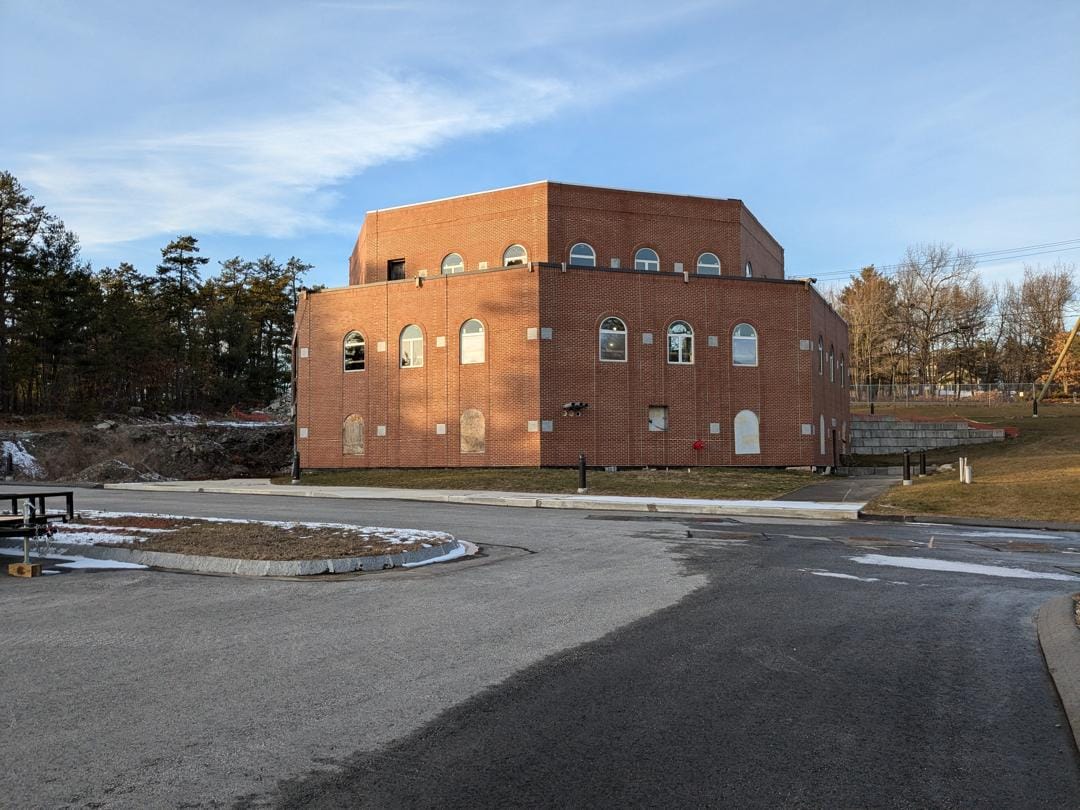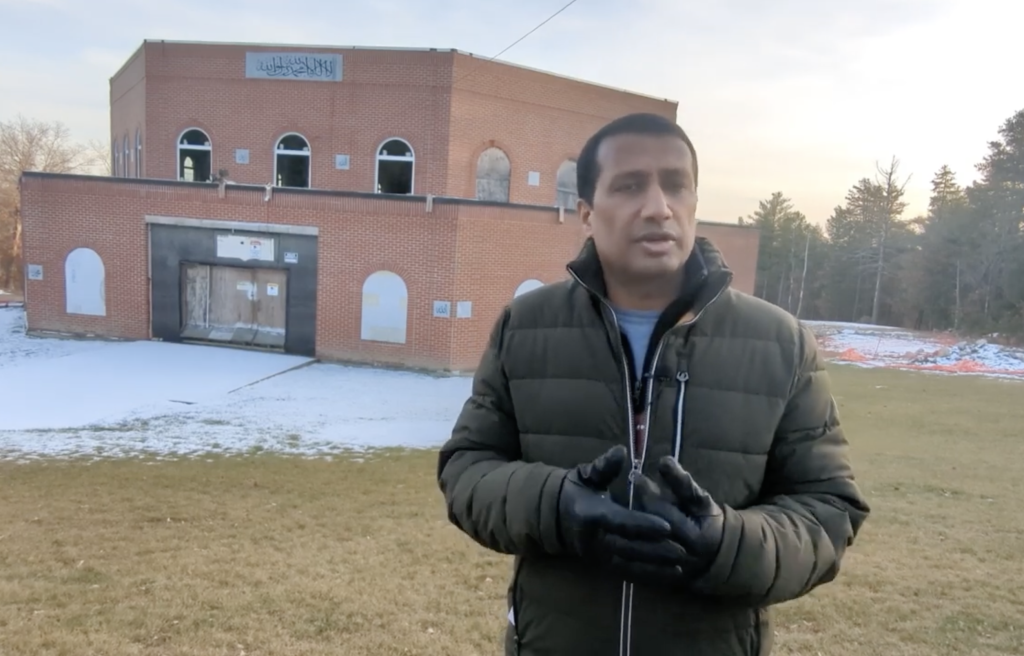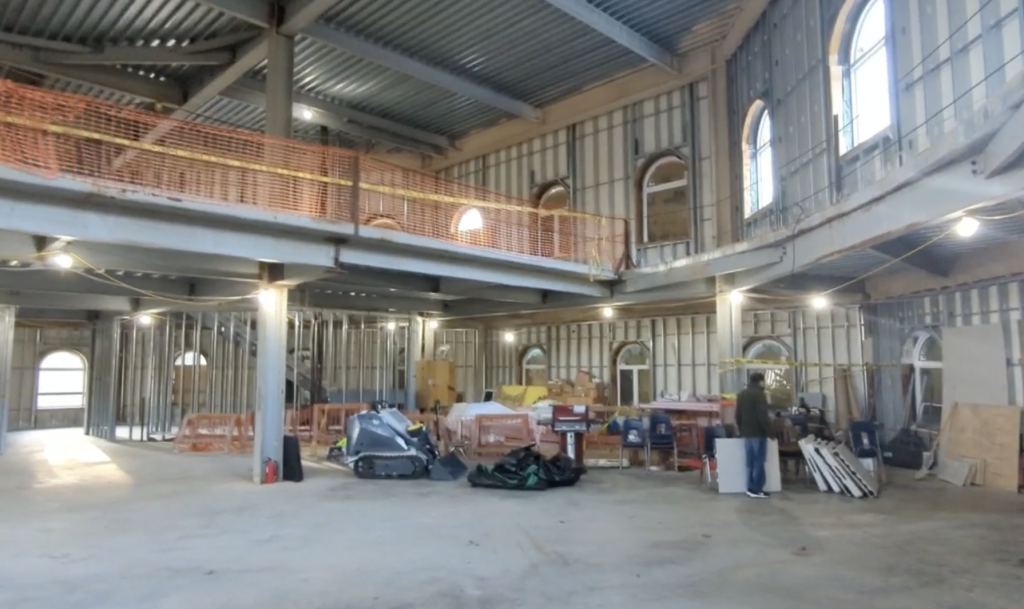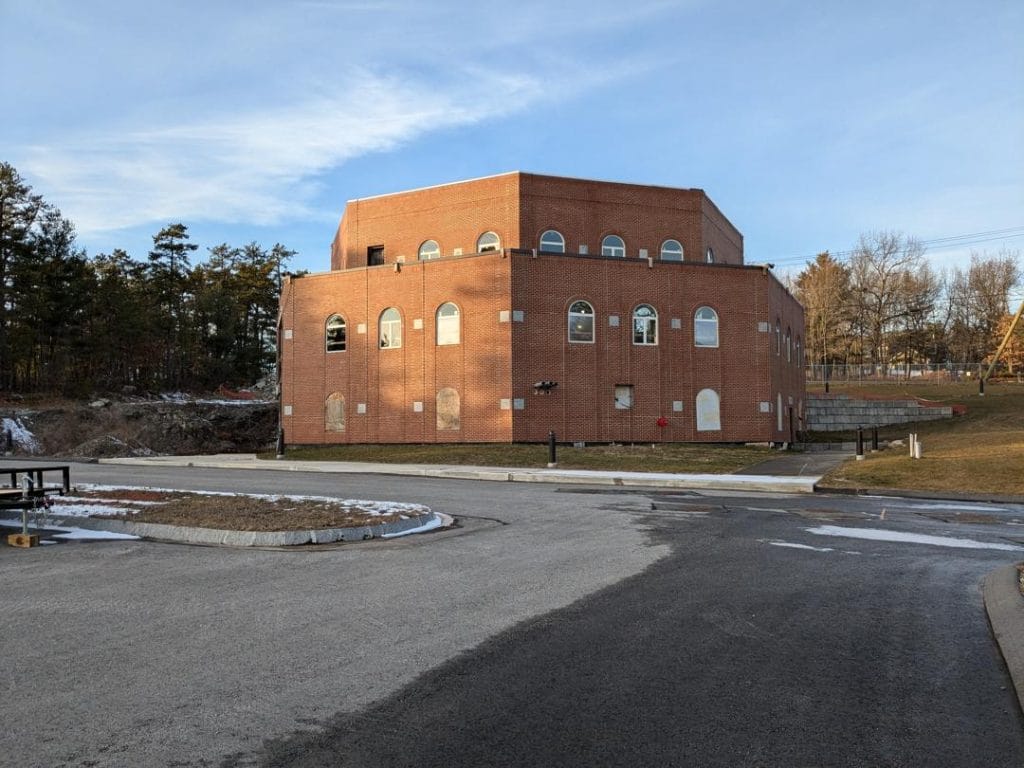After decades of setbacks and delays, Islamic Society of New Hampshire nears completion of long-awaited mosque
More than a quarter of a century after their dream of having a house of worship of their own began, there is a sense that the dream will now become reality in 2025.


MANCHESTER, NH – This could finally be the year of the mosque for The Islamic Society of New Hampshire.
More than a quarter of a century after their dream of having a house of worship of their own began, there is a sense that the dream will now become reality in 2025.
It began in 1998 with a land purchase, followed by eight years mired in legal battles with the city, and also with then-Karatzis Avenue abutters. But the Islamic Society finally broke ground on its mosque in 2007. Since then, progress has been painfully slow. As it stands right now, the circular brick building remains unfinished. But those who continue to shepherd the project along say that the goal is in sight – which is to have the ground floor completed and in use this year.
The blueprints outline a two-story building with a domed roof encircled with windows. Inside there is a prayer room, tutoring center, full basement for meetings and a large kitchen. Despite all the time and money invested in the mosque so far, there’s still an estimated $2.5 million of work left to do, according to Mohammad Islam, who has served on the building committee since about 2013, and is the chairman.

Legal challenges
The Islamic Society purchased the 2.75 acres off of Wellington Road in 1998 for about $38,000 to build the mosque, or masjid, in Arabic – a place where Muslims could come for daily prayer, fellowship and religious education. However, the city’s zoning board refused to grant a variance to allow the mosque to be built based on the fact that the road where the mosque was proposed, Karatzas Avenue, was not a “publicly accepted street” at that time, even though it was maintained by the highway department. The matter ended up in court and eventually, the area around the mosque was developed with housing, and the road completed, paving the way for progress. Also during this time, the 9/11 attack in New York City happened, and there were some other lawsuits filed by abutters to stop construction to “protect the public health, safety, and welfare” of the neighborhood. Those challenges did not stand up, legally, and by 2007, ground was finally broken for the project.
But the financial strains compounded by a worldwide pandemic have hindered progress.
“We can’t predict exactly a date when we’re going to be able to finish it and the reason for that is we’re running into all these issues when we are doing the site work. We signed the contract and it was going to be done in a year but COVID hit and everything went out the window, and the site contractor filed for bankruptcy so they had to get a separate subcontractor. All these kinds of things that just keep adding to our delay here,” said Islam.
“We could hand it over to a general contractor and say ‘just get it done’ if we had unlimited amounts of money. Of course, if you give somebody $7 or 8 million dollars they’ll come and finish it within six, seven months, but we just don’t have that money,” Islam said.

Right now they are working out some HVAC hurdles on the first floor, and after that, the remaining work should “go quickly,” allowing them to begin using the mosque. All funding has been raised by the local Islamic community. Over the years there have been some efforts by local ecumenical groups to support their efforts, but the bulk of expenses is raised through their own annual fundraising events.
“From the time I’ve been involved I have not seen a lot of outside support pouring in to finish this. Mostly it’s the local Islamic community doing whatever they can do,” Islam said.
They are paying about $10,000 monthly in rent and utilities to stay at the temporary mosque where they have been worshipping for many years, in a shopping plaza off South Willow Street. Moving into the new mosque will save more than half of that in their monthly expenses, Islam says.
“And instead of having to pay rent to somebody we can be in our own facility,” he said.
In addition to the building they have had to build the parking lot, run a water line from where the nearby apartments are and pave the entire road, which cost about a million dollars.
“We’re probably looking at another million dollars to finish the first floor to move in, and then once that is done, the second and third floor – it’s hard to tell because the price of everything is changing. But I can tell you we still have a million dollars to go for the first floor,” Islam said, and probably another $2 million to make the mosque whole.
Despite all that, the goal is finally within reach.

When the Islamic Society began in Manchester they were just 56 people gathering inside someone’s apartment. As the community grew, they moved into the basement of a space across the street from Gill Stadium and then eventually to the shopping plaza on South Willow Street, says Islam.
Because of the time and money already invested in the building project, the decision was made to focus on finishing the first floor and moving in.
“Once we move in, I think people will be more inclined to donate to finish the upper two floors, so that’s the plan right now,” Islam says.
Islamic Society Board member Irhad Rapidzija describes their community as “very diverse” – primarily because their temporary mosque is the only place of worship for Muslims in the vicinity.
“We have people here from many different countries, many different nationalities, many different ethnicities,” he says.
The temporary mosque is used daily for prayers including Juma (Friday – day of assembly) and other activities.
“On Wednesdays we have Quran class for adults then on Saturdays we have something that we like to call family night – brothers, sisters, children – and everybody’s here then we have a lecture but after lecture there’s a dinner for the community here and that’s going on pretty much every Sunday then, apart from that, we also have a youth committee which is basically for brothers and sisters, so high school age and they basically organize different programs,” Rapidzija says. “Sometimes it’s some lectures with dinners, sometimes going for a hike, for picnics and stuff like that. Then on Sundays we have a Sunday School for children to learn the Quran and to learn about Islam.”
They do not have a full-time imam (prayer leader), so one of their members manages those duties, says Rapidzija.
“In terms of employees we have zero employees. In terms of management we have a Board of Trustees which consists of seven trustees and apart from that, if we have to hire a cleaning person that there’s going to be the only person that’s going to be paid. Otherwise, everything is volunteer-based,” Rapidzija said.

These articles are being shared by partners in the Granite State News Collaborative. For more information, visit collaborativenh.org





